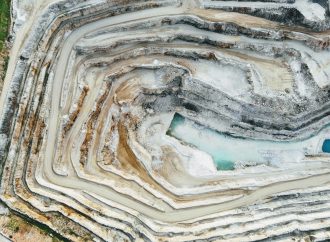When Canadians woke up to learn that they were the proud owners of a run-down pipeline, many of them no doubt asked themselves, “Can the government just do that?” After all, nationalization hasn’t been a popular government pastime in Canada since the 1970s.
The answer is that of course the government can do that—and has done so in various ways over the past decades, through bailouts, subsidies, and all-out nationalizations when markets and firms run into serious trouble. Yet, the kind of emergency bailout that we are witnessing today should still raise alarm bells among those who believe that major economic decisions should be subject to genuine democratic debate.
Of course, the Liberal government has been quick to assure us that the nationalization is an entirely temporary measure, only necessary because of the current crisis, which requires a use of exceptional government powers to bail out a major economic sector that is vital to the Canadian economy.
If this language seems oddly familiar, it’s because it’s almost exactly the kind of exceptionalist rhetoric that we heard from the Harper Conservative government during the 2008 global financial crisis (as well as the Bush administration in the United States and the Labour and then Conservative governments in the United Kingdom, to name just a few).
Ten years ago, it was the major auto companies that received a government bailout of $13.7-billion in Canada, while in the US and the UK, auto companies, major banks, and financial institutions were the recipients of massive government injections, together with a few choice all-out nationalizations. The global insurance firm, AIG, alone received US$182-billion from the Federal Reserve Bank of New York.
While government intervention is a normal part of a market economy, not all such interventions are equally legitimate. When should a government break the normal rules of democratic deliberation and free-market economics and bail out big firms with taxpayer money?
A quick comparison with government responses to the 2008 global financial crisis helps to clarify what’s at issue here.
In both 2008 and today, the government’s actions were peremptorily announced and driven by the prime minister and cabinet without full democratic consultation. The justification then, as now, was that the needs of the market actors were too immediate to be subjected to the normal contentious processes of democratic politics.
Then, like now, we were told that these were temporary, exceptional government actions and were necessary because of the massive crisis that the economy faced.
Then, like now, we were also promised that the investment would be repaid, as the private sector regained its ground. (In fact, in the Canadian case, The Globe and Mail reported that the Harper government sold back its shares in the auto sector too quickly and the taxpayers took a $3.5-billion loss.)
Yet, that is where the parallels end.
In 2008, there was arguably a very legitimate concern about an imminent global financial meltdown. The US government had initially refused to take the bailout route and had let the financial firm, Lehman Brothers, fail. The firm’s failure produced a massive global market-wide panic, as banks wondered who would be next to go under and refused to lend to each other, nearly bringing the financial system to a halt. Although it is impossible to know what would have happened without massive government intervention in the United States, Canada, and around the world, there is a strong case to be made that the general public good was at serious risk as we faced the prospect of another Great Depression.
Where are the major risks to the public good today? Arguably, in this case, they are those identified by the people arguing against the pipeline: the very real risks of oil spills on the West Coast and the potentially catastrophic costs of climate change.
There is no massive economic crisis in the offing. Yes, there is significant uncertainty surrounding the pipeline, but any firm in this business should know by now that pipelines are immensely political, and build that into their business plan. Yes, Alberta’s economy would take a big hit from losing the pipeline deal – and it will face significant economic challenges in the future as the province and the country make the necessary shift toward a low-carbon economy. These are serious policy challenges that require genuine public debate and innovative public and private investment – not an imperious bailout.
A crisis needs to be serious, and the threat to the public good very clear, for a government to legitimately bypass normal democratic processes. The Kinder Morgan Trans Mountain pipeline nationalization clearly does not meet this threshold. As such, it represents a particularly undemocratic form of economic exceptionalism.
This article was originally published by the Globe and Mail on 7 June 2018.










